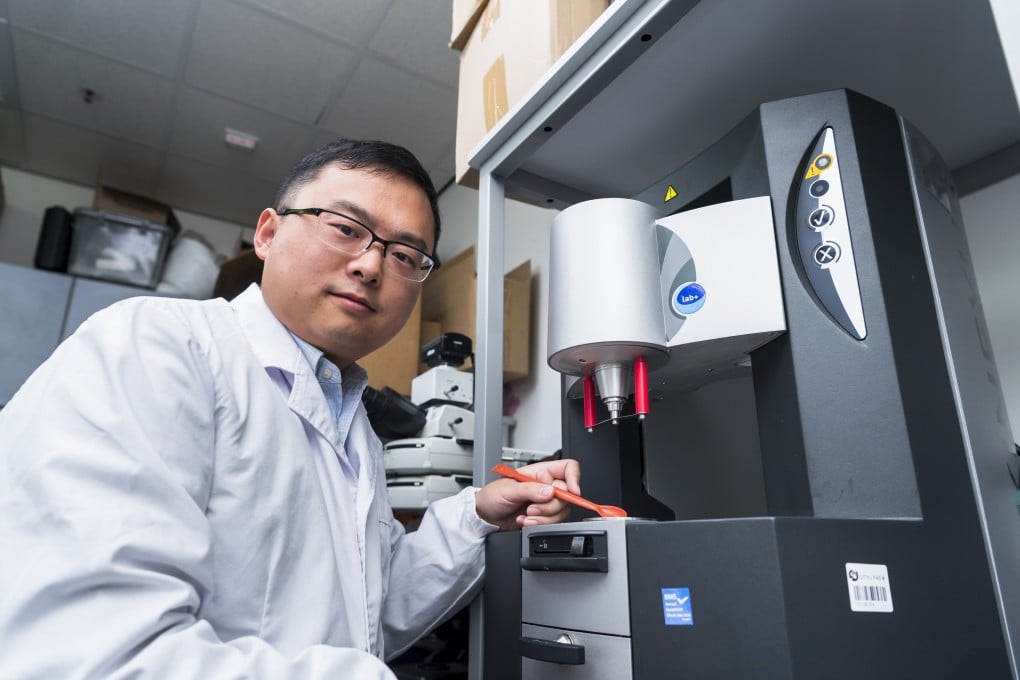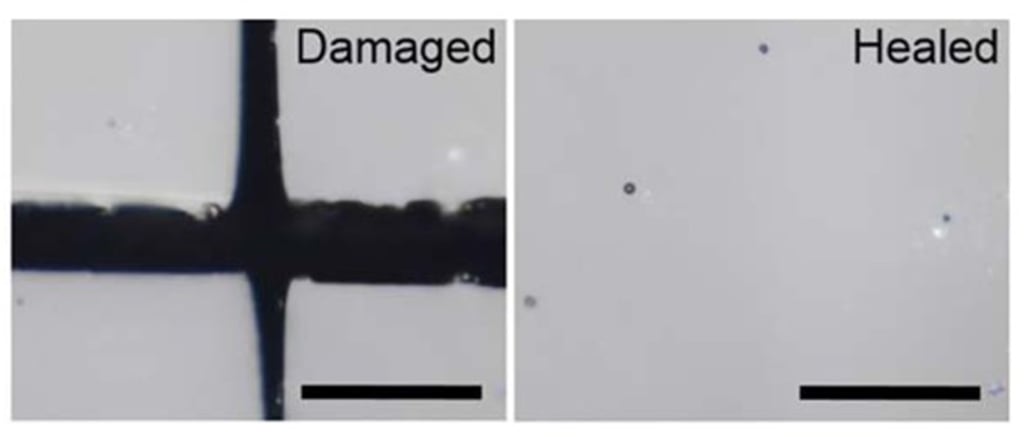World-first coating developed at City University of Hong Kong can enhance medical and aerospace equipment

[Sponsored Article]
A world-first self-healable anti-smudge coating successfully developed by a research team at City University of Hong Kong (CityU) could lead to production costs that are 80% lower than for existing materials.
With strong adhesion that lets it stick firmly to the bases of various materials for their protection, the new CityU coating can rapidly heal itself from damage and mechanical defects, and can thus enhance the durability of, for example, medical and aerospace equipment.
The project, “Damage-healable Anti-smudge Coating”, was developed by a team led by Dr Yao Xi, Associate Professor in the Department of Biomedical Sciences. It has been published in Science Advances under the title “Supramolecular silicone coating capable of strong substrate bonding, readily damage healing, and easy oil sliding”.
Anti-smudge coatings are applied mainly to medical equipment, automobiles and electronic products. They repel liquids, which makes the surface of materials easier to clean. The production cost of such coatings is high as they conventionally rely on materials containing fluorine compounds (around US$2,000 to US$3,000 per kg). The cost will be even higher for coatings for long-term applications with better mechanical stability and scratch resistance.
As a type of smart material, self-healable materials are mainly used for conductive coatings, electronic packaging coatings and scratch-resistant coatings. In particular, they are used for equipment and devices used in industries that are extremely difficult to maintain such as aviation, aerospace and maritime. However, there is so far no self-healable technology or product available on the market that possesses the anti-smudge feature.
Dr Yao’s research team found that the oligomers capable of dynamic crosslinking and assembly assisted by hydrogen bonds (H-bonds) are the most favourable design in constructing self-healable polymers with desired functionality. This is due to features such as tunable binding dynamics and a rapid healing mechanism. The mechanical properties of the polymers can be tuned by modifying the chemistry and molecular weight of the polymer backbone and the aggregation of the H-bonds.
Based on their findings, Dr Yao and his team developed a new and advanced polymer coating that possesses both the features of self-healing and anti-smudge. It also has high optical transparency, is easily healable, has high mechanical strength, enhanced oil sliding and good interfacial adhesion. A US patent has been filed.
“Compared with conventional anti-smudge coatings, our newly-developed polymer has a lower production cost (around US$300 per kg) as it is made of organic silicone without fluoride. Also, it surpasses existing self-healable materials by having the capabilities of resistance to oil stains and is easy to clean,” Dr Yao said.
“Materials with both the properties of anti-smudge and self-healable can enhance the durability of products and devices. Thus, the market has a high demand for this new material, particularly in the fields of biomorphic robots, wearable electronic products, medical and molecular engineering,” he added.
